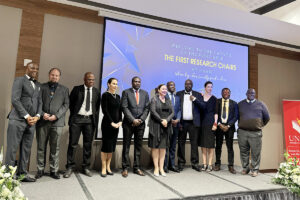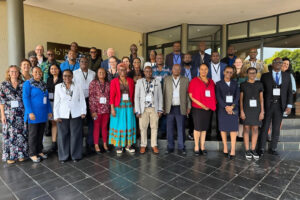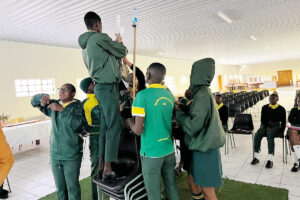Cognitive control is a sophisticated cognitive technique that helps people adjust, control and acclimatise their thoughts, feelings and behaviour to the demands of the environment or personal goals.
Literature identified that cognitive control is negatively related to depressive symptoms, and positively to satisfaction with life and stress management. Research was conducted on cyclists participating in the Nedbank Desert Dash 2023.
This research focused on cognitive control, cognitive flexibility and the relation with personal growth and satisfaction with life. A total of n=99 cyclists completed a survey (Part 1) and nine solo cyclists (three females, six males) shared their experiences through interviews (Part 2).
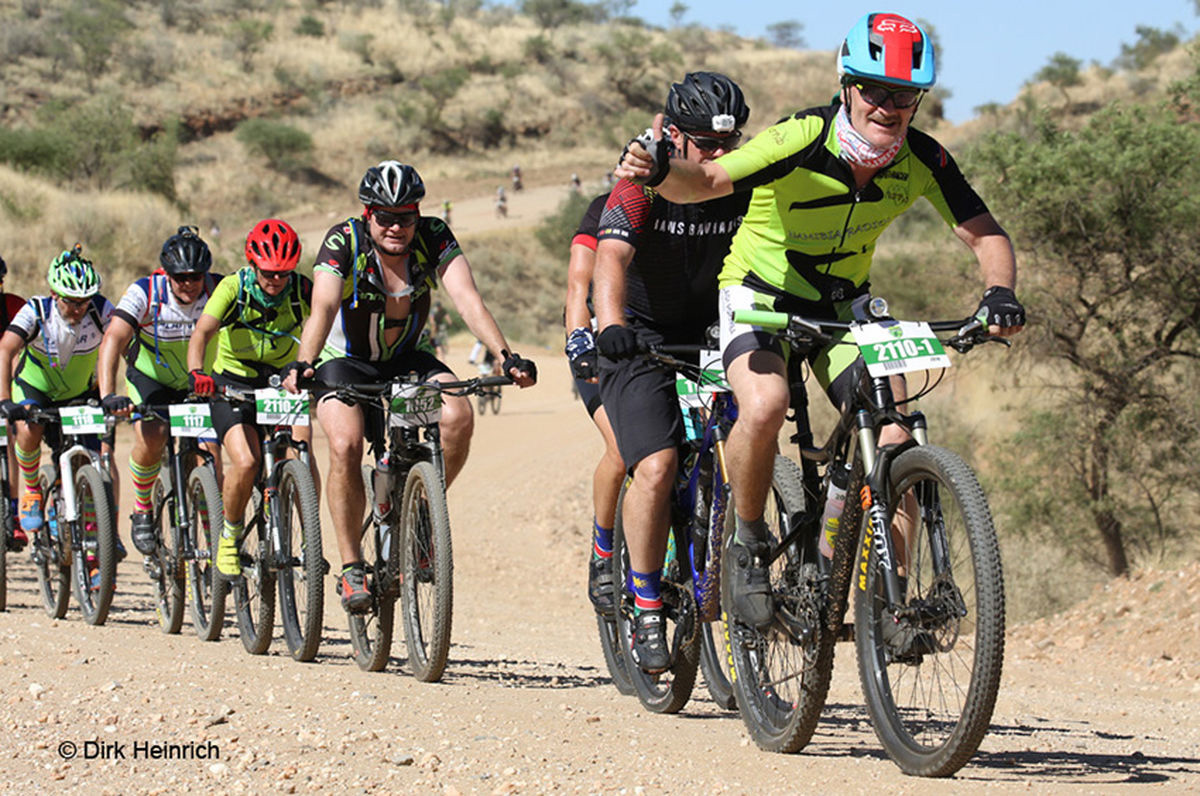
The Nedbank Desert Dash is celebrating 20 years in 2024 and continues to boost Namibia’s economy.
It is a 24-hour mountain bike race hosted in December, cyclists’ cycle from Windhoek to Swakopmund, throughout the night and through the Namib Desert. The international participants do not only come to compete in the event but also to explore and enjoy the beauty of Namibia.
For most Namibian cyclists, participating in the Nedbank Desert Dash is like a right of passage and the ultimate test in endurance mountain biking. Completing the Dash is life-altering.
There has been an increase in endurance events. Considering the time, effort and resources invested in such events, succeeding for these athletes and sponsors is of cardinal importance.
In their study, Associate Professor Wesley Pieters found that cognitive control had a positive relationship with personal growth. Cyclists who are able to inhibit inappropriate responses and modify their attention (cognitive control) are likely to continue improving in life and realise their potential (personal growth).
Personal growth is a dimension of psychological well-being. Cognitive flexibility, which is closely related to cognitive control, is the ability to alter thinking strategies, change behaviour, be resilient under stressful situations or identify multiple perspectives for complex situations. This study noted that cyclists with a higher level of cognitive flexibility would experience higher levels of psychological well-being (personal growth).
Personal growth has been associated with lower risk for diseases, improved self-awareness, living longer lives, ability to adapt to changes and challenges in life. The absence of personal growth may result in an unfulfilled existence, absence of meaningfulness and the reduced ability to cope in life.
This study found a positive association between cognitive control, cognitive flexibility, personal growth and satisfaction with life.
Cyclists that are able to strive for improvements (personal growth) are likely to experience higher levels of satisfaction with life. Satisfaction with life, which is part of subjective well-being, can be defined as the appreciation of one’s life.
Literature found that satisfaction with life is associated with enhanced academic performance, self-regulation, athletic achievement, enhanced goal pursuit, improved coping, effective stress management, resilience, general health, improved relationship quality and time management.
It is interesting to note that this study did not find any differences regarding the variables and the biographical characteristics of participants (sex, age, number of cycling sessions per week, years of cycling experience, educational qualification or the format they entered for the Nedbank Desert Dash).
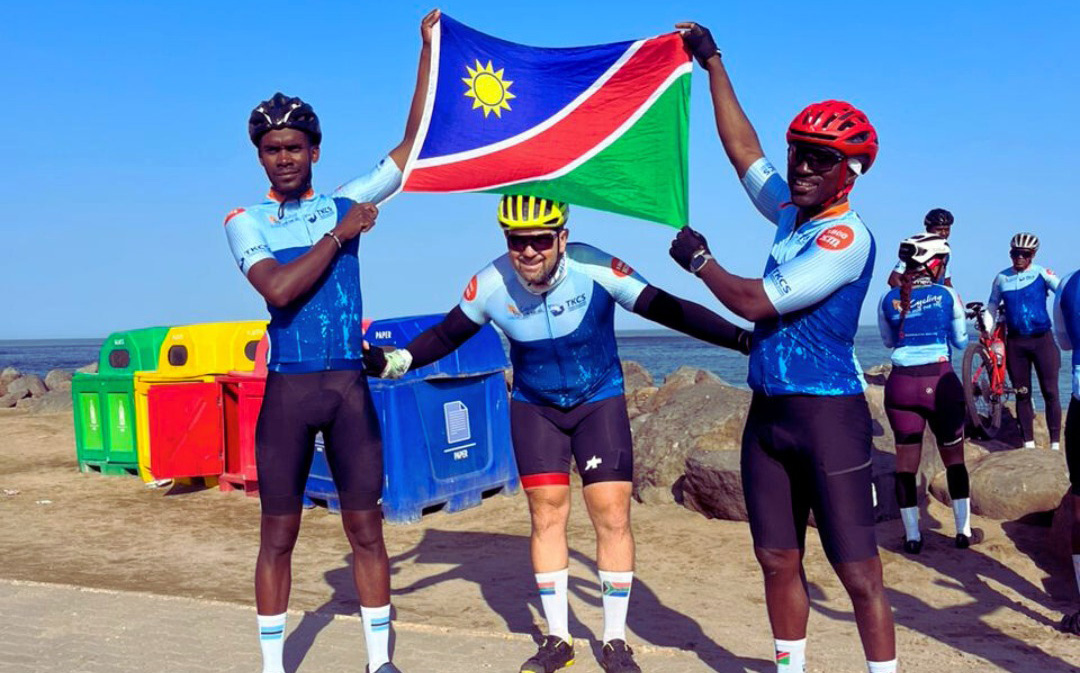
During the interviews, cyclists noted using different coping techniques when cycling. Some of the cyclists mentioned using chunking to manage this mammoth challenge.
Chunking is mostly applied to learning. It is the ability to break down large amounts of information into more manageable smaller parts. Cyclists do not think about the 400km but rather remain focused on the next task, reaching the next water point.
“I see myself passing half-way”, noted one of the cyclists. Visualisation is the ability to create mental images that help with learning, problem-solving, and memory.
Visualising your goals or challenges helps when faced with these situations and enhances motivation.
Other cyclists noted making use of mindfulness. “I am suffering on this climb or in the race but I will reach Swakopmund”, replied another cyclist.
Being present in the moment without judgement is instrumental to remaining focused, avoid biases, and being appreciative of the privileges. “I pray from Windhoek to Swakopmund”, said another cyclist.
Religion and spirituality are other techniques used to conquer the Desert Dash. Positive self-talk and negotiating was also identified.
Having an internal conversation with yourself can be motivating and encouraging. Some cyclists mentioned negotiating with themselves, their body, mind, and sometimes their creator.
The cyclists all confirmed that the lessons learned on the bike have been intertwined into their lives and that cycling remains one of the best educators in life.
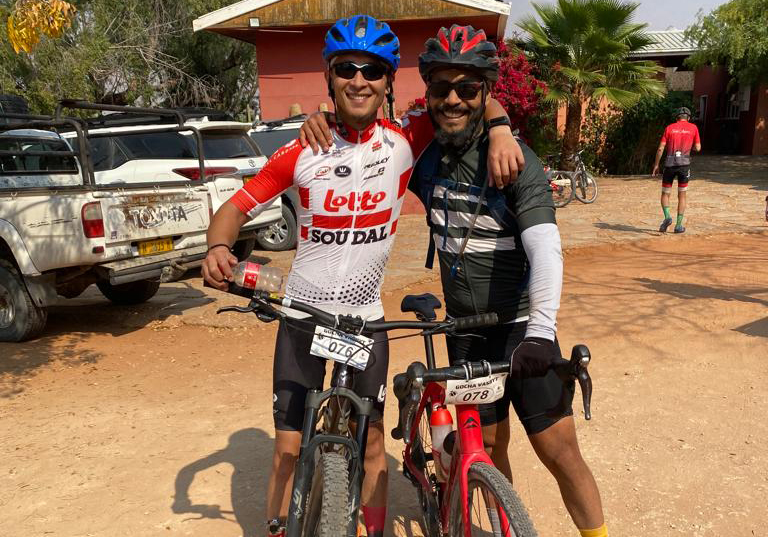
“The Desert Dash is 80% mental and 20% physical”, affirmed one of the cyclists. As athletes, being mentally prepared is as important as preparing your body physically, preparing your nutrition, recovery strategies and your equipment.
This study is the first of its kind within Namibia and the relevance of these findings can be tested to non-athletes, the personal and work life.
This study recommends that the cycling schools league be expanded to more schools within Namibia, tertiary institutions and organisations. It is recommended that cyclists spend time practicing their cognitive strategies and mental coping techniques before they start their races.
This study recommends that sport psychology (trainers and educational programs) within Namibia focus not only on the physical aspects of preparation but also the psychology of athletes. It is recommended that cognitive flexibility and cognitive control (sport psychology) be implemented as part of sports coaching training/clinics/programs.
Cognitive flexibility and cognitive control can be applied to other educational and workplace training programs outside of sport. Cognitive control, cognitive flexibility, personal growth and satisfaction with life is applicable to other domains of life.
All the best to the cyclist doing the Nedbank Desert Dash 2024.
Acknowledgements: Thank you to Ms A. Liedtke and Ms T. Diergaardt for their contributions. Thank you to the event organisers and all participants of the study.
Story contributed: Associate Professor Wesley Pieters (Department of Psychology and Social Work; UNAM)



